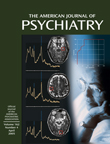Mainstream psychology is once again joining dynamic psychiatry and transpersonal psychology in the scientific study of character and its development. This book is the first progress report of the effort by positive psychologists to develop a “classification of the sanities.” The authors provide a list of traits that can be studied in future work on well-being. However, an adequate positive psychology of character must show how
anyone can learn to feel good, not just some people with
special personality traits. Therefore, the development of a taxonomy of well-being requires consideration of character development within a comprehensive psychobiological model of personality, as is done elsewhere
(1).
The present volume is largely composed of well-informed reviews of 24 personality traits that are called “character strengths” because each is asserted to be socially valued in its own right and also provides one of many alternative paths to virtue and well-being. Each trait is considered in a separate chapter along with psychometric evidence documenting its reliable measurement. Each trait is defined behaviorally and illustrated by a representative case. For example, being asked for advice by others is taken as a measure of a wise perspective, so the late advice-columnist Ann Landers is suggested as a paragon of wisdom. Not everyone will agree with such choices, but simple behavioral measures do bring concepts of virtue down to a practical level of everyday experience that is understood and approached by many people.
The focus on common behaviors facilitates reliable measurement and gives hope that many people are on the path to well-being. Such hope is limited, however, by the facts that not everyone has the strengths listed and that some putative strengths also have disadvantages. For example, curiosity (novelty seeking) can certainly have its disadvantages, such as greater risk of abuse of illegal substances. Their paragon of curiosity is John Lilly, a psychologist notorious for substance abuse, as depicted in the movie Altered States.
Peterson and Seligman are more convincing in their challenge to the relativistic assumption that values depend largely on cultural conventions. They suggest that a small number of specific personality traits have been consistently valued as adaptive in all humans regardless of culture. Their important conclusion is supported by a review of virtues recognized in each of the great world cultures (China, India, Greece). For example, their list of six core virtues is a slight rearrangement of the seven virtues of the Christian tradition: temperance (e.g., modesty, self-control), justice (e.g., fairness, citizenship), courage (e.g., fortitude, bravery), practical wisdom, humanity (e.g., charity), and transcendence (e.g., hope, faith).
Peterson and Seligman are self-proclaimed agnostics who specifically deny any faith in the divine. To accommodate the prominent role of faith in the happy life, they recognize it as an alternative to hope on the path to their overarching concept of transcendence. However, empirical findings show that the character traits that measure faith, hope, and charity are all interdependent and synergistic in making a person feel good
(1). This casts doubt on the agnostic view that hope and faith are simply alternative paths to well-being. When faced with adversity or death, we realize that the moral level of intellect and virtue recognized by agnostics is hard and incomplete—doomed to heroic struggle and despair, as acknowledged by Freud and Erikson. Without faith, hope and love cannot reach a transcendental level that is spontaneous and unconditional.
The major accomplishment of this book is in showing that empirically minded humanists can measure character strengths and virtues in a rigorous scientific manner. Peterson and Seligman are forthright in stating that their theoretical perspective has not been adequate to produce a taxonomy in which specific configurations of traits predict a person’s level of well-being. Their materialistic worldview proves inadequate to provide a theoretical account of transcendental phenomena like creative gifts and the contemplative experiences that are the foundation for faith and spirituality
(1).
Although Peterson and Seligman are agnostics, they have now observed in their own factor analytic work that spiritual faith is a major dimension of character independent of hopeful self-directedness and charitable cooperativeness. Their finding confirms earlier psychometric work showing that spirituality is an important dimension of character that contributes to well-being
(1–
3). I hope that the authors’ integrity and open-minded humility will serve as an inspiration for other empirically minded humanists to evaluate the adequacy of their own worldviews, no matter what conclusions they may reach.

